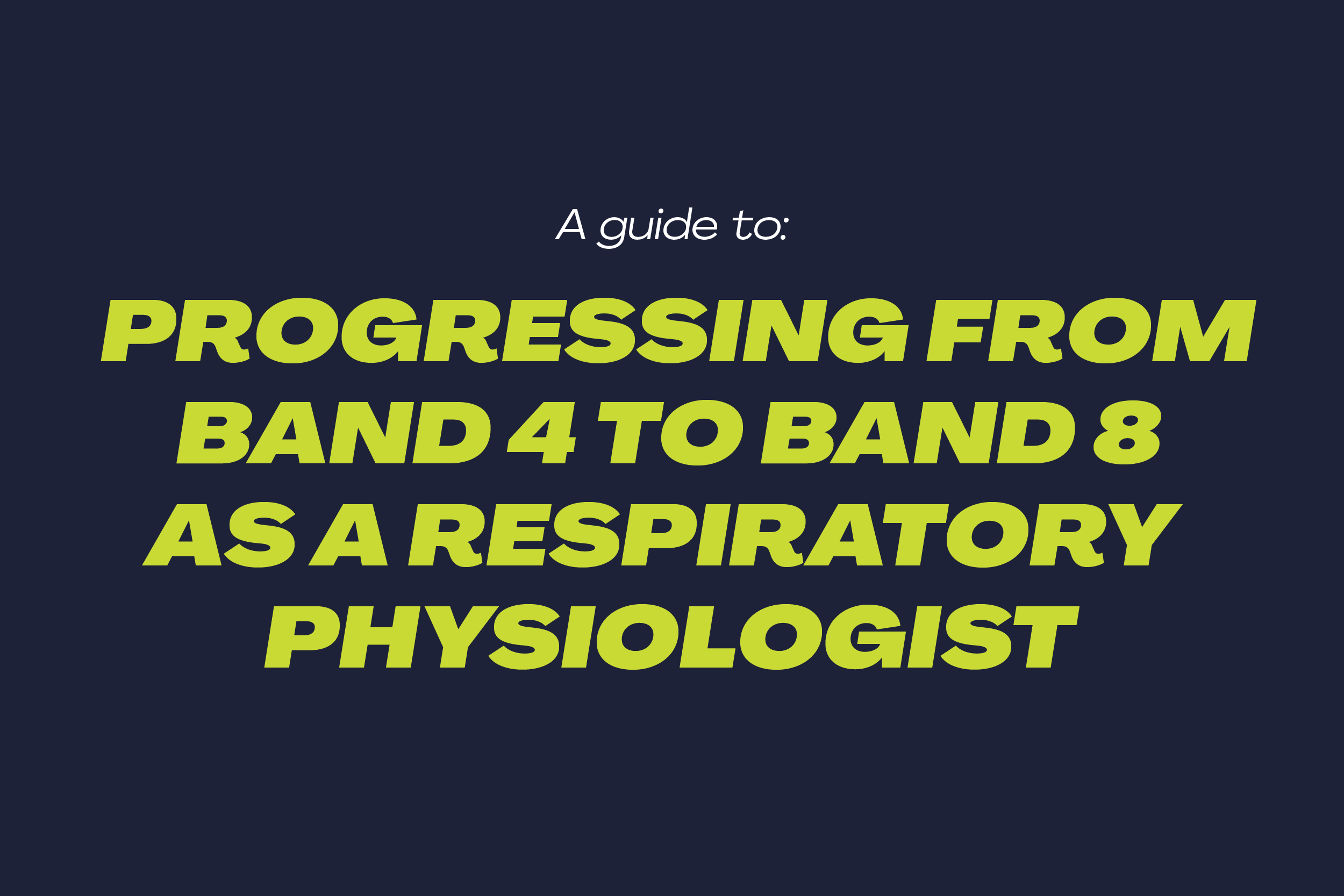Filter Job search
Read more clinical physiology guides
Looking for more than just jobs? These guides are here to give you tips, advice, and insigths to help you make the most of your clinical physiology career.
What is Clinical Physiology
Clinical Physiology is an essential aspect of healthcare science, concentrating on the intricate workings of the human body and its response to various conditions. This field is central to understanding patient health and aiding clinical physiologists and clinical scientists in diagnosing, treating, and managing diseases effectively.
Clinical Physiologists are experts in assessing and interpreting the body's physiological data. Clinical Physiologists use non-invasive tests like heart and lung tests to help understand patient health. They play a crucial role in finding and tracking diseases early.
Starting a career as a Clinical Physiologist in the UK involves specialised training and accreditation. New healthcare graduates begin with a science degree, study the body, and then gain hands-on experience in their chosen field. Key to professional recognition is registration with the Registration Council for Clinical Physiologists (RCCP) or the Association of Clinical Scientists (ACS), which uphold the profession's standards and promote ongoing development. This certification signifies competence and commitment to excellence in patient care, opening doors to a rewarding career in Clinical Physiology.
Clinical Physiology Roles
There are different specialties within Clinical Physiology:
Cardiac Physiologists: are essential in diagnosing and treating heart diseases. They carry out diagnostic tests such as electrocardiograms (ECGs) to examine the heart's electrical activity and echocardiograms, which utilise sound waves to create images of the heart. Their expertise supports non-invasive and invasive procedures, contributing significantly to patient care by ensuring accurate diagnoses and effective treatment plans.
Non-Invasive Cardiac Physiologists: specialise in heart function assessment through external tests, perform stress tests and ambulatory monitoring to record heart rhythms over time. Their role is crucial in diagnosing heart conditions without surgical intervention, providing indispensable data for developing patient treatment strategies.
Echocardiographers: With a specialised focus on ultrasound technology, they perform echocardiograms to assess heart structure and function. They play a pivotal role in the diagnostic process, aiding in detecting and monitoring heart conditions through detailed heart imagery and contributing essential information for patient management and treatment.
Respiratory Physiologist: Experts in lung and respiratory system function, respiratory physiology uses tests like spirometry to measure lung capacity and function. They are involved in diagnosing, treating, and managing lung conditions, performing sleep studies and exercise tests to gauge the effects of respiratory disorders. Their work is integral to creating comprehensive care plans to improve patients' respiratory health.
Cath Lab Pacing Technician: Operating within the catheterisation lab, Cath Lab Pacing Technicians specialise in cardiac device management during procedures. They assist in the implantation of pacemakers and defibrillators, monitoring patients throughout these interventions. Their technical expertise ensures the devices function correctly, playing a vital role in procedures that help maintain the heart's rhythm and patient health.
The Importance of Clinical Scientists: Working alongside Clinical Physiologists, Clinical Scientists delve into patient care's research and development aspect. They are at the forefront of creating new diagnostic methods and advancing treatment technologies. By analysing medical information accurately, they help improve healthcare practices and patient results.
Working together in multidisciplinary teams is essential for providing complete care to patients. This includes collaboration between Clinical Physiologists, Clinical Scientists, and other healthcare professionals. This teamwork makes sure to consider all parts of a patient's health. Experts work together to understand medical information and create the most effective treatment plans.
Interpreting Clinical Data: The ability to interpret clinical data accurately lies at the heart of Clinical Physiology. It enables healthcare providers to understand the human body's complexities, guiding diagnostic processes and informing treatment decisions. This critical analysis allows for personalised care tailored to meet each patient's unique needs.
What does a Clinical Physiologist earn?
As a Clinical Physiologist, your salary will depend on your band and experience.
The starting annual salary at Band 5 is £24,907, rising to £30,615 depending on your years of experience. Senior Clinical Physiology roles can reach up to Band 8, this band sub-bandings:
- Band 8a, which starts at £45,753 per annum
- Band 8b, which starts at £53,768 per annum
- Band 8c, which starts at £63,751 per annum
Further Salary Insight:
Glassdoor Clinical Physiology UK Salaries
Prospects Salary Insights - Clinical Physiology
Explore the diverse world of locum work in Clinical Physiology. Shape your career and enjoy exciting experiences in this vibrant field. This unique path offers you the reins, allowing you to work a shift in an array of healthcare settings, each with its unique challenges and rewards. It's a journey that broadens your professional landscape and enriches your skill set with every new assignment.
Embracing Flexibility and Variety: Locuming is the epitome of flexibility, ideally suited for those who thrive on change and seek a dynamic work environment. Whether you've worked a shift in a high-tech hospital or supported a small community clinic, each experience contributes to your growth as a versatile and adaptable professional. This flexibility extends to part-time opportunities, enabling you to balance professional commitments with personal pursuits, be it further studies, hobbies, or family time.
Tailored Work-Life Balance: The allure of locum work lies in its unmatched ability to provide work-life balance on your terms. Choose when and where you work a shift, enjoying the liberty to pursue part-time engagements that fit seamlessly into your life. This autonomy allows you to experience the breadth of Clinical Physiology without the constraints of a traditional 9-to-5 role, making every workday an opportunity for adventure and learning.
A Stepping Stone for Professional Development: Beyond the lure of flexibility and variety, locuming catalyses career advancement. Each new setting exposes you to unique clinical challenges and learning opportunities, from mastering the latest diagnostic technologies to navigating different patient care protocols. Working a shift in various environments not only enhances your clinical skills but also enriches your ability to collaborate with multidisciplinary teams, boosting your professional network and opening doors to future opportunities.
Impactful Work, One Shift at a Time: Locum work is more than a professional choice; it's a commitment to making a difference in patients' lives across different communities. You ensure that vital clinical physiology services remain uninterrupted by stepping into roles where you're most needed, whether on a part-time or shift basis. Your contribution helps maintain high standards of patient care, providing a gratifying sense of purpose and fulfilment.
Join the Locum Community in Clinical Physiology: If you're looking for a career that combines the thrill of new challenges with the flexibility to work a shift or part-time, locuming in Clinical Physiology might be the perfect fit. You have the opportunity to create your path in healthcare. You can experience various healthcare settings and make a meaningful impact. You can also maintain the work-life balance you desire. Embrace the locum lifestyle and discover where your professional journey can take you.
Your World - Your Career Starts Here
Please speak to our Clinical Physiology team today to find out how we can help you find a new and exciting opportunity. Our commitment lies in pairing you with the ideal Clinical Physiology job- a permanent position or a rewarding locum opportunity.




